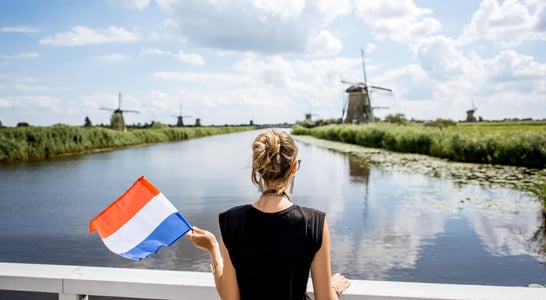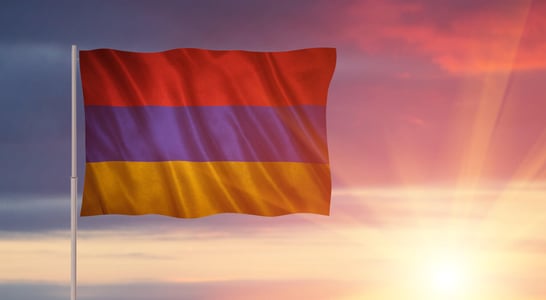
Late Summer Bank Holiday
Take advantage of the perfect opportunity to soak up the last of the summer sun, make memories with loved ones, and unwind before the autumn.
Taking place on the last Monday in August, the Late Summer Bank Holiday in the UK is a public holiday that was originally introduced as a way to give workers an extra day off at the end of the summer season, and it is still celebrated in this way today.
Some people use the holiday as a chance to take a short vacation, while others use it to spend time with friends and family or to participate in local events and activities.
Regardless of how it is celebrated, the Late Summer Bank Holiday is a much-anticipated and much-needed break for many in the UK, and it is a great time to enjoy the warm, sunny weather and all that the country has to offer.
How to Celebrate the Late Summer Bank Holiday
There are several different ways for people in the United Kingdom to celebrate the Late Summer Bank Holiday.
Some use the time as an opportunity to relax, either by staying at home or by going on a short trip. Others use the holiday to be with loved ones, and may participate in activities such as barbecues, picnics, or outdoor sports.
The Late Summer Bank Holiday is also a popular time for travel, and many in the UK take the opportunity to visit other parts of the country or to go abroad.
During this time, retailers are often known to hold Bank Holiday sales, giving people an excuse to go out to do some shopping and take advantage of special deals and discounts.
History of the Late Summer Bank Holiday
The Late Summer Bank Holiday in the UK was introduced in the Bank Holidays Act of 1871, which established four bank holidays in England, Wales, and Ireland.
The Act was passed in an effort to improve the living and working conditions of industrial workers, who often worked long hours in difficult and dangerous conditions.
The Act designated the first Monday in May, the first Monday in August, the first Monday in December, and Boxing Day (December 26th) as bank holidays.
Although the Late Summer Bank Holiday, also known as the August Bank Holiday, was originally celebrated on the first Monday in August, it was later moved to the last Monday in August in the 1970s as part of the Banking and Financial Dealings Act of 1971.
This Act also established the Spring Bank Holiday, which is celebrated on the last Monday in May, and it moved the May Bank Holiday from the first Monday in May to the last Monday in May.
The Act was intended to give workers more three-day weekends throughout the year, and it has been widely celebrated in the UK ever since.
Late Summer Bank Holiday FAQs
Did the Late Summer Bank Holiday ever have a religious origin?
Unlike many other public holidays, the Late Summer Bank Holiday does not have religious roots.
It was established to give workers a break and encourage leisure activities. It reflects a secular shift, focusing on relaxation and social events instead of religious observance.
Why do people often associate the Late Summer Bank Holiday with barbeques?
The timing of the holiday, during late August, aligns with warm summer weather, making it ideal for outdoor gatherings.
BBQs have become a popular tradition, especially in gardens and parks. It’s seen as one of the last chances to enjoy summer dining before autumn.
Are there any superstitions linked to the Late Summer Bank Holiday?
Some believe rain during this holiday signals a wet autumn ahead. While there’s no scientific basis, this superstition persists due to the UK’s unpredictable weather.
It often sparks playful conversations among those planning outdoor activities.
What are some lesser-known ways communities celebrate this holiday?
Beyond large events like the Notting Hill Carnival, smaller towns host quirky festivals.
For example, the Egremont Crab Fair in Cumbria features events like gurning (face-pulling) competitions, adding a local flair. These celebrations highlight regional traditions and creativity.
Did Victorian workers always get the day off for the August Bank Holiday?
When the holiday was first introduced in 1871, only certain professions, like bankers, benefited.
It wasn’t until later that the day off became common for all workers. This gradual change reflects evolving labor rights in the UK.
How did the rise of seaside resorts influence the Late Summer Bank Holiday?
In the early 20th century, seaside resorts thrived as affordable holiday destinations.
Workers often used the August Bank Holiday for day trips to places like Brighton or Blackpool. The tradition of seaside visits continues today, albeit with more modern attractions.
Why is the Late Summer Bank Holiday known for traffic jams?
Since the holiday falls at the end of summer, families rush to make the most of their time off.
This often leads to clogged motorways and crowded trains, especially near tourist hotspots. The travel surge is a consistent feature of the holiday.
What’s the connection between the holiday and live music events?
Many music festivals coincide with this holiday, including Reading and Leeds festivals.
These events attract thousands of attendees, combining the celebratory spirit of the bank holiday with live entertainment. They are a major draw for young audiences.
Why do many shops hold sales during this holiday?
Retailers see the bank holiday as a chance to boost sales before back-to-school shopping begins.
Promotions often target families, offering discounts on everything from school supplies to clothing. This trend has made the holiday a significant shopping period.
What’s one of the strangest records set during the Late Summer Bank Holiday?
In 2004, a group in Nottinghamshire set the record for the largest human mattress dominoes.
Over 300 people participated, tumbling in sequence. Quirky events like this show the playful, creative side of holiday celebrations.
See what else is happening…
There’s always more going on every month at Days Of The Year. Here are our favorites this month!
Also on ...
View all holidaysNational Kiss And Make Up Day
Let go of petty grudges and drawn-out fights, and Kiss and Make Up with those nearest and dearest to you, whether that’s a sibling, friend, spouse or anyone else.
National Whiskey Sour Day
Try out any number of whisky sour recipes, usually using whisky, lemon or lime juice, simple syrup, and bitters. Play around with other flavors and liqueurs, too.
National Banana Split Day
Savoring a delightful trio of creamy scoops, crowned with a medley of toppings that create a harmonious blend of flavors and textures.








